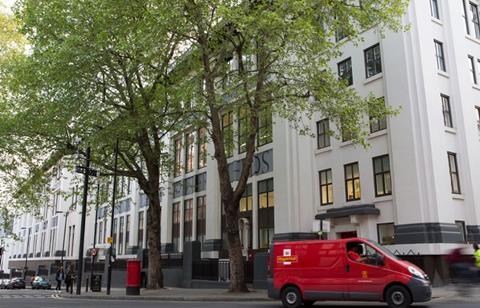
Between March and April 2019, national postal and courier organisation Royal Mail introduced a focus on financial wellbeing to better support its 140,000 staff and mitigate the effects that financial difficulties could have on employees’ overall wellbeing.
Ian Dockerill, employee share plans and benefits manager at Royal Mail, explains: “We were concerned about the level of financial difficulties that some employees may be in and the impact that could be having on their health.”
Royal Mail’s financial wellbeing provision includes a debt consolidation loan service, provided by Neyber, debt counselling delivered by the charity StepChange, and financial education.
Employees are able to access the debt counselling service through Royal Mail's employee assistance programme (EAP), or via the helpline for the employer's charitable fund, the Rowland Hill Fund. This is run independently of the business, offering financial aid for employees’ families or former staff. Employees who are refused a debt consolidation loan will also be given information on how to contact StepChange in case they would like additional support.
In March 2019, Royal Mail revisited its financial education offering, exploring what online education is available and considering new partners in order to expand the provision. “[Financial education is] pretty much at first base,” Dockerill says. “We are just starting on that journey.”
First class wellbeing
This suite of financial wellbeing benefits forms one pillar of Royal Mail’s extensive health and wellbeing programme, Feeling First Class. This was launched in December 2012 as an online portal, and aims to actively encourage employees to take ownership of their own health and wellbeing.
Within the overarching Feeling First Class brand, Royal Mail focuses on numerous specific areas of wellbeing. For example, First Class Mental Health houses the financial wellbeing information, as well as links to the EAP. Initiatives such as smoking cessation or healthy eating are included in First Class Lifestyle, while any promotions around driver safety are under the First Class Driving banner.
The benefits of the Feeling First Class initiative are twofold, explains Shaun Davis, global director of safety, health, wellbeing and sustainability at Royal Mail: “It’s good for the organisation in terms of looking after its people and showing [employees] how much [we] take care of them and how [we] value their contribution, but it’s also good for our people. It gets them to talk about or access services that they might not ordinarily have access to. It’s good for people and good for the business.”
Offering choice
The variety of benefits and initiatives within the Feeling First Class programme is very much indicative of Royal Mail’s wider benefits strategy.
Davis says: “The philosophy at Royal Mail is about giving people choices and options to suit their individual circumstances. Not having a one-size-fits-all approach. We’re all adults, we should be able to pick and choose the things that best suit us, and so a programme or a series of offerings that people can pick and choose from is the best way to do it.”
One way that Royal Mail delivers this spectrum of choice is via its flexible benefits platform, My Bundle, which was launched in March 2016. The platform provides access to benefits such as a company car scheme, childcare vouchers, retail discounts, a bikes-for-work scheme and salary sacrifice benefits. Employees are able to make their benefits selection between January and March each year.
For Royal Mail, empowering employee choice is a central part of its engagement strategy. “The prime focus for us is to engage employees,” Dockerill explains. “To engage them in feeling good about their employer, liking us, becoming more engaged with the aspirations of the [organisation], aligned to [the organisation’s] goals.”
Davis agrees: “[We] put a lot of effort into retaining our people, so obviously a good job with good pay is part of that, but also the flexible benefits programme and giving people the options to pick and choose is one way of keeping people engaged.”
Dockerill notes that the most popular flexible benefits are the retail discounts, in particular cinema tickets, and the technology salary sacrifice scheme, which was introduced in March 2018. In the 12 months since its launch, 10,712 individuals have taken up this benefit, spreading the cost of items such as smartphones or electronic gadgets.
Getting employee input
To ensure this broad approach remains relevant to its diverse workforce, and to track which perks are proving the most successful, Royal Mail relies on employee input. The main feedback source is an annual employee opinion survey, traditionally conducted in March; this includes specific questions around wellbeing and engagement.
The organisation also gathers feedback using a website called Just Say It, which allows staff to email Royal Mail with comments and suggestions. This is used alongside weekly listen and learn sessions, where managers speak to their teams to get direct feedback, as well as ad hoc focus groups.
Prior to the implementation of any programme or initiative, Royal Mail runs a pilot scheme, so that it has the opportunity to fine-tune the offering.
Communication challenges
Despite efforts to tailor benefits to employees’ specific wants and needs, ensuring these are accessible and effectively communicated is a key challenge, particularly when postal workers are often working out in the field.
Dockerill explains: “Our main challenge is finding ways to make benefits more accessible to all employees. Obviously 80% of our employees are not connected. We have to communicate with them and get to them through communications first.”
With this in mind, Royal Mail uses a multi-pronged communications approach. This includes communicating via articles on the staff intranet and the business’ newsletter, The Courier, using workplace huddles, sending WhatsApp messages and displaying rolling news items on television screens on-site.
Managers who have access to a work mobile or laptop can receive email communications, but Royal Mail also plays to its strengths, using home mailing as a key method of correspondence.
Salary sacrifice
A further challenge for Royal Mail is the balance between compliance with national minimum wage regulations and operating salary sacrifice schemes. “It restricts the number of employees that can access the benefit,” Dockerill explains. “We pay well above [the] national living wage, but salary sacrifice is included as part of the national minimum wage calculation. When [employees] select the benefit, it tells them that even though they’re only selecting a benefit that costs £30 a week or something, that takes them below [the] national minimum wage, so they’re not eligible.
“It’s really sad because our scheme, in particular, is focused on our front line employees. These are our employees that most benefit from what we’re offering and yet they are the least able to use it because of the national minimum wage [regulations].”
For Royal Mail, choice is everything when it comes to the benefits provision, especially in terms of driving employee engagement and building alignment with the employer brand. Davis concludes: “The key driver is giving people choice. We’ve tried to be really flexible in terms of allowing people based on age, demographic, interests to be able to pick and choose a variety of different things.”
At a glance
Postal organisation Royal Mail delivers letters, parcels and provides mail services to 30 million addresses across the UK, six days a week. The organisation, which is 503 years old in 2019, employs 140,000 staff.
Typical roles at Royal Mail include front line staff, such as post men and women, unit managers and functional managers. Employees also work across central functions, for example HR, IT and finance.
The gender split of Royal Mail’s workforce is approximately 80% male to 20% female and the average age of employees is mid-40s.
Business objectives
- To grow the parcel delivery section of the business.
- To continue providing a great quality of service to Royal Mail customers.
- To explore how to better support commercial customers.

Career history
Dr Shaun Davis, global director of safety, health, wellbeing and sustainability, joined Royal Mail in 2012.
Davis started his career focusing on health and safety within the construction sector, working up the corporate ladder of organisations such as Balfour Beatty, Rok and Biffa Group. Since 2000, he has primarily held director-level roles, joining the postal industry in 2012 when he began his tenure at Royal Mail.
The last year has been one of great personal achievement for Davis; he collected the Institute of Directors’ (IOD) Director of the year, corporate social responsibility award in October 2018, as well as the Reward and Employee Benefits Association’s (Reba) Employee wellbeing vanguard award in February 2019.
Davis states that the projects he is most proud of have been around culture change and engagement, particularly projects that have led to a reduction in accidents. He says: “If I think back to my time in construction, being able to take the organisations I worked for to really best in class levels of accident reduction and accident performance, [that has] been the biggest [achievement].”
Read more...











